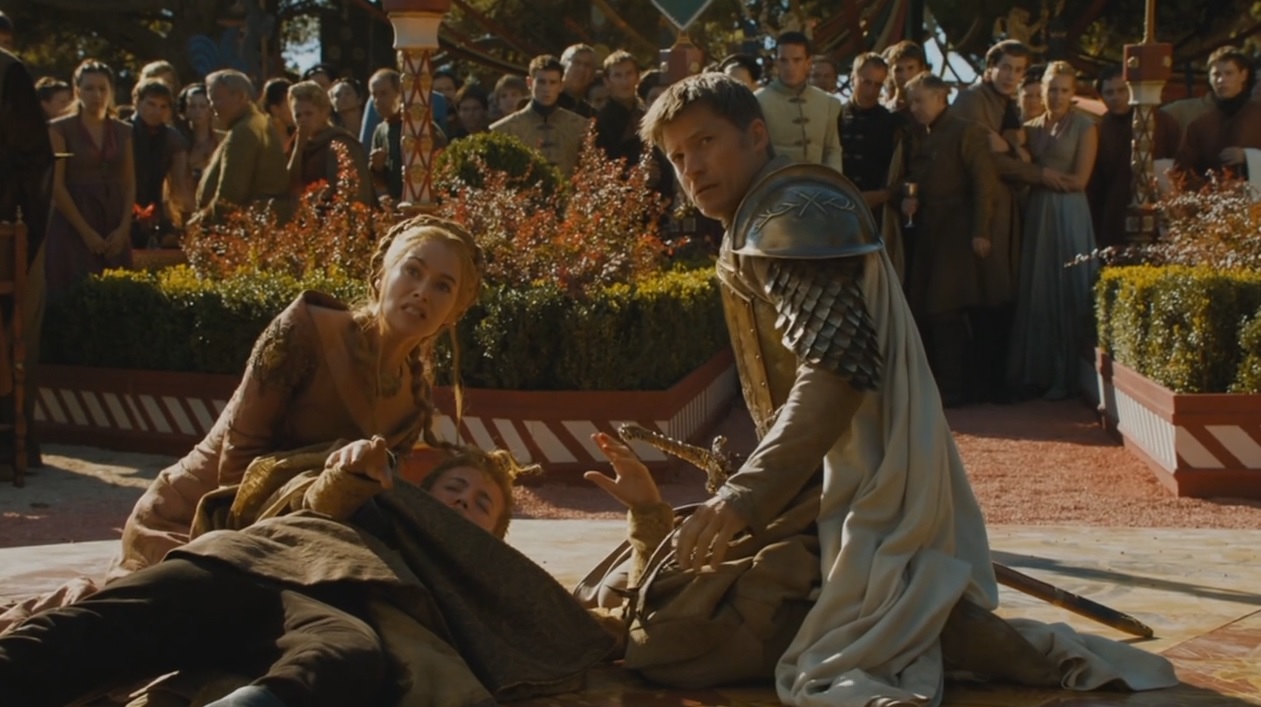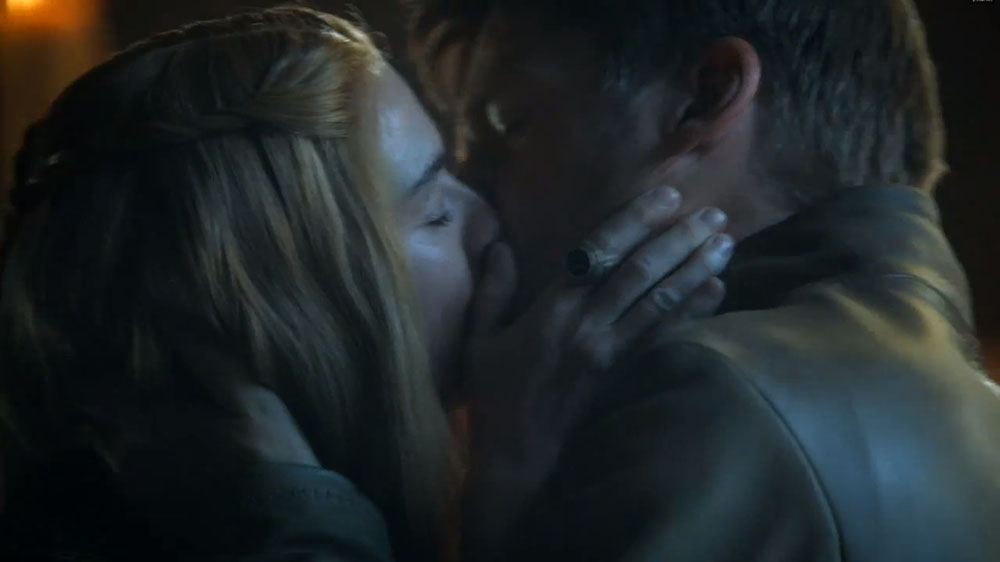We need to talk about Jaime Lannister: Why rape isn’t a suitable plot device
WARNINGS: The following article contains spoilers through the the fourth book in George R. R. Martin’s Song of Ice & Fire series (Feast for Crows), as well as through season four, episode three of Game of Thrones. Additionally, please note that we are including a trigger warning due to this article’s discussion of rape.
Due to one short but extremely controversial scene, last night’s Game of Thrones, the third episode of the fourth season, has caused quite an uproar amongst many fans of two characters in particular – those being Cersei and Jaime Lannister. Of course, this isn’t the first time the show has made questionable changes with our favorite incestuous twins, but personally I feel that the line they crossed in Breaker of Chains is one that will be extremely difficult (if not impossible) to bounce back from.
Admittedly, I have a bit of a love/hate relationship with Cersei (I mean let’s not lie, she’s both awesome and completely maddening), but Jaime Lannister has been one of my favorite Song of Ice & Fire characters since I read his first point of view chapter in A Storm of Swords. That said, do I think that he’s a ‘good guy’? Of course not. Like so many of the other great characters in this series, he’s morally gray. He pushes Bran out of a window, attacks Ned and kills Jory, incessantly mocks Brienne, threatens to send Edmure Tully’s unborn baby to him via trebuchet…the list goes on and on.

All of that may be old news, but more recently, when Jaime was in despair over having just lost his hand, he still went out of his way to stop the Brave Companions from raping Brienne (and earned himself a beating in the process).
To say that all of this pales in comparison to the way Jaime thinks of and feels about Cersei isn’t even right; the man who experienced the aforementioned situations would not rape a woman – any woman – and that’s that. But apparently consensual incestual sex (while Cersei was on her period, to boot) wasn’t ‘edgy’ enough for the show.
Additionally, the director of Breaker of Chains apparently believed that he was depicting an at least somewhat consensual sex scene; he stated that “…it becomes consensual by the end, because anything for them ultimately results in a turn-on, especially a power struggle.” Unfortunately, this belief of Alex Graves is just as problematic as them simply wanting to make the sept scene more ‘edgy’ than it is in the books – if not more problematic, because Cersei resisting Jaime’s advances, saying ‘no’ and fighting back until the end, never once uttering the word ‘yes’ – is not a sex scene Graves or Game of Thrones or HBO should be proud of. It’s just another example of the rape culture that we live in.

Author: Tara Lynne
Tara Lynne is an author, fandom and geek culture expert, and public speaker. She founded Ice & Fire Con, the first ever Game of Thrones convention in the US, and now runs its parent company Saga Event Planning.
Help support independent journalism. Subscribe to our Patreon.
Copyright © The Geekiary
Do not copy our content in whole to other websites. If you are reading this anywhere besides TheGeekiary.com, it has been stolen.Read our
Related posts:
6 thoughts on “We need to talk about Jaime Lannister: Why rape isn’t a suitable plot device”
Comments are closed.








You’re right on the money with this analysis. As a book reader I was bothered by the character assassination of Jamie (one of my favourites in the series), but as a human being I was sickened to see a contemporary piece of fiction (based on my favourite books no less) peddling the rape myth. The director’s comments confirm it “… it becomes consensual by the end”, textbook example of the rape myth, a sickening and dangerous lie.
Thank you for writing this piece, it’s sad that this type of thing is necessitated by ignorance and/or fecklessness on the part of the creators, I just finished watching the episode and am too angry and disgusted to write a cogent piece myself, but this type of thing matters. People may just dismiss it as a change to a story, but it’s more than that, it’s propaganda for an ideology that makes excuses for the victimisation of women (whether the show runners realise that or not) and that must be exposed for what it is and countered wherever it arises, especially in more high profile material like GoT.
“Character assassination” is the best way to put it. The thing I loved about Jaime is that I really hated him in the first book and then his character evolved and he became one of my favorites. An arc that dramatic is rare. The show started to send him down that arc and then it made him a rapist, quickly undoing any progress he may have had.